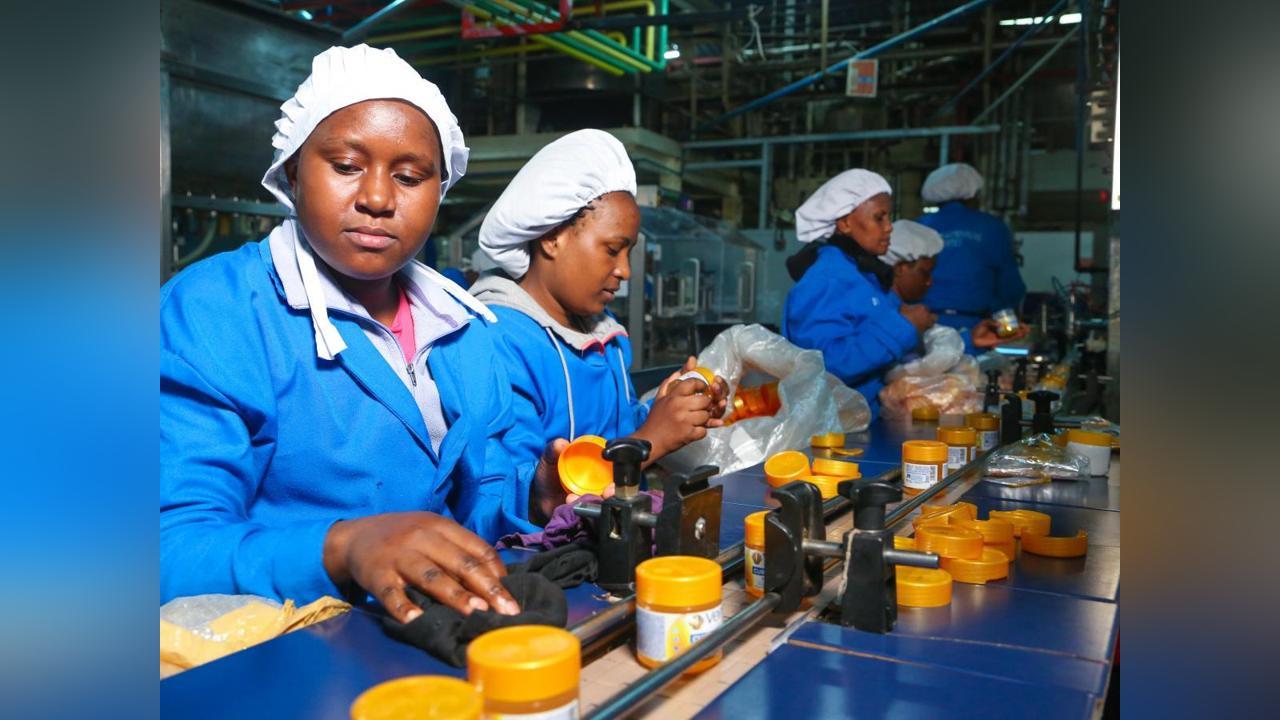Africa-Press – Angola. The president of the Industrial Association of Angola (AIA), José Severino, considers that the new customs tariff, in force since April 3, favors the country’s industrial sector in useful areas.
The manager explained that, in the sector, the diploma benefits the agri-food and construction materials areas, despite some experts arguing that many of the products are still not produced locally, which is false.
The revised document that led to reductions in all products considered essential, namely agricultural inputs, industrial equipment, roads and automobiles, will facilitate national production to continue to grow and create conditions to “produce cheaper” than imported goods.
With this new measure, he insisted, the State is “giving space to the national productive sector to supply certain products”, in decisions adopted through consultation with business associations and confederations knowledgeable about the sectors in which they operate and with studies that recognize the prevalence of productive capacity in certain areas.
“There are no exceptions to what would be useful, although some small reductions are respected to accommodate the rise in the exchange rate”, he said.
Production protection
The official described the current document as “more protective of national production and encouraging national industry and agriculture”, pointing out the increase in rates for goods that the country already produces and the exemptions on the import of commercial vehicles such as trucks, vans, tractors, buses and public passenger transport.
José Severino also considers that there is some deficit that concerns the demand for nationally produced goods, but the deficit that exists can be filled with ongoing programs under the responsibility of the Executive.
“At this moment, there can be no other option due to the risk of there being production and not being able to correct the rate during the five years of validity of the agenda, which would greatly harm the country”, he said.
Main changes
The customs instrument presents an increase in import duties on some products such as vegetable oil from 0 to 40 percent, sugar from 20 to 40 percent, milk from 30 to 40 percent, beans from 10 to 15 percent and clothing from 10 to 40 percent.
Import duties on some products such as fish were also reduced from 30 to 20 percent, drinks from 60 to 50 percent, cell phones from 10 to two percent and jewelry from 50 to 10 percent.
To amend this diploma, which came into force on the 14th of this month, studies were carried out with a Technical Group, which included ministries, customs brokers and international operators, with the aim of prospecting and analyzing all measures of an economic and social nature for food security.
The new Customs Tariff contains 6,007 tariff lines, of which 2,195 are exempt from import duties representing 37 percent.
The Angolan Customs Tariff is exempt from import duties, being classified as one of the most balanced at the level of the Southern African Development Community (SADC).
The objective is for the country to have a legal diploma that meets the requirements of the World Customs Organization (WCO) System.
The OMA System obliges the parties to make changes every five years, and Angola has done so in order to meet technical advances and reconcile the Customs Tariff with the State’s commercial policies.
New version of the agenda values “Made in Angola” products
The protectionist measures of the customs tariff could benefit the nascent national industry sector, defended, in Luanda, the professor at the Lusíada University of Angola, Divava Ricardo.
The professor made it known that the updated diploma will benefit the Angolan industry, especially the raw materials, subsidiary and consumer sectors in which import taxes are between two percent for petroleum oils or bituminous minerals, as well as free taxes for gaseous hydrocarbons, for cellulose and its derivatives, and some plastics and articles thereof, some rubbers and articles thereof.
For the economist, the food industry, in particular agricultural inputs, with “prohibitive” import taxes stimulates an increase in the production of vegetables, plants and tubers.
With duty rates at 50 percent on tomatoes, carrots, turnips, mushrooms, beets and fruits such as citrus fruits, bananas, grapes, melons, watermelons, cherries and others.
The “prohibitive” rates of 50 and 40 percent will allow “Made in Angola” products to be cheaper compared to the same types of imported products.
Diversify exports
For the professor at the Methodist University of Angola, Florberto Kabumbo, the State has sought to value the sector and this implemented measure can serve as a strategy for a gradual replacement of imports, in addition to increasing and diversifying the volume of exports.
“This strategy aims, consequently, to create more jobs and improve the population’s living conditions”, he said.
In relation to market competitiveness, the new diploma can only have a positive impact if it presents growth across the entire production chain.
According to the teacher, this diploma has the potential to promote competitiveness in the national market in different sectors, namely the protection of national production, the fight against unemployment and irregularities in imports, the impact of prices on consumers and the balance between national production.
“The plan to maintain competition is important, but it is necessary to control the effects and adjust policies according to needs”, he warned.
For More News And Analysis About Angola Follow Africa-Press






